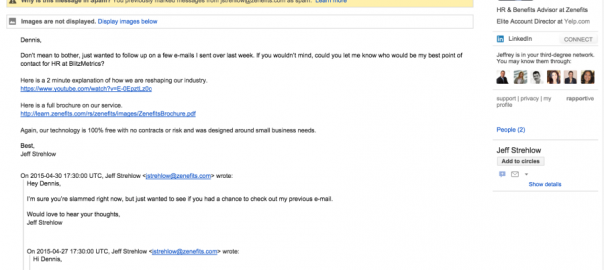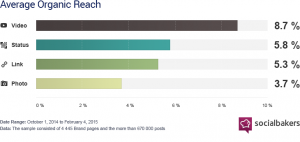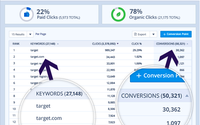Some people call it consultative selling – to add value via your expertise, as opposed to regurgitating what anyone can find online already in your marketing materials.
But it’s more than that.
You have to be a committed ambassador of the thing you stand for.
It’s that passion that causes people to convert– enough to practice “rational ignorance”, which is make a smart choice without have to do the arduous research.
When people practice “rational ignorance”, they willingly forego the mental exercise of further evaluation, since they trust your brand.
And if you believe that your brand is the sum of what others say about you, as opposed to what you might say about yourself, then it makes sense.
We’ve called this inbound marketing, content marketing, SEO, public relations, social media marketing, and word of mouth marketing.
They’re all the same thing, since they fundamentally involve getting others to endorse you, whether it’s a backlink, testimonial, or otherwise.
Naked selling is the outright shilling when you haven’t earned the right yet to provide your opinion.
It’s the preferred practice of the digital purse snatcher, who would love to run your credit card to sell his services over your objections and whether or not there’s a fit. He’s not even looked at what you do, so there’s no way there could possibly be alignment. But he’s too lazy to care.
Here’s a garden variety example:
And my response, which I have given to many of their aggressive sales people:
This is coming from the Forbes startup of the year, according to their email signature, no less.
Usually they don’t reply, which is what happened here.
Jakob Hager, who is the CEO and Co-founder of Taskwunder, stresses the importance of not damaging your brand’s image, and providing personalized value and having a relationship instead of selling out of the blue:
A lot of people believe that it’s ok to do “growth hacking” and send out as many emails as possible in order to generate leads for their startup. Sometimes, this may be successful and get you leads, but you have to be very careful and avoid hurting your brand when you do cold emailing. You may just end up with bad customers, who don’t have the money but demand a lot of time and effort. The best in the industry see through what you are doing and they are annoyed by it. You may end up getting a few leads, but annoy a lot of people who could have been your customers if your first point of contact had been different.
If you believe you have to write cold emails – in fact, not only for selling your services, also in general for contacting people – make sure you first read about what they have said publicly and then provide value for them. Offer them something that they could need and be relevant. Say things like “I’ve read your articles about topic A, B and C and I would like to know your opinion about X”. Don’t try to sell something right away. You will be surprised how many people reply. If they don’t reply, at least you didn’t hurt your brand. The least you want to do is annoy all the influential people in your industry.
Many of these spam messages start with false personalization around how they love our company, in the hopes of then arranging a meeting to discuss their product. Because I’m the catch-all on our domain (so all ex-employee emails go to me), I often get a dozen of these messages all at once with identical wording.
We can hope that the email spam filter and various newsfeed filters will catch folks like this.
But more importantly, folks like these will be eventually penalized, since their cost of generating business will increase.
They must adapt by showing genuine interest in the people they’re reaching out to. They have to become content marketers who wish to educate first, earning the right to a conversation.
This article was originally posted here.
(218)










